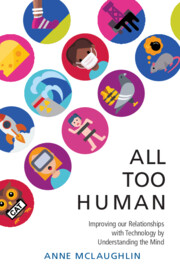Book contents
- All Too Human
- All Too Human
- Copyright page
- Contents
- Figures
- Tables
- Preface
- Acknowledgments
- Introduction
- 1 “Brace for Impact”
- 2 Bad Water
- 3 Hybrid Vigor
- 4 A Mind Divided
- 5 All the Light We Cannot See
- 6 Mistakes
- 7 History Repeating?
- 8 Needles in Haystacks
- 9 Apt Pupils and Alien Invaders
- 10 A Relative to Truth
- 11 Old Principles for New Worlds
- Conclusion
- Notes
- References
- Index
6 - Mistakes
We’ve Made a Few
Published online by Cambridge University Press: 27 January 2022
- All Too Human
- All Too Human
- Copyright page
- Contents
- Figures
- Tables
- Preface
- Acknowledgments
- Introduction
- 1 “Brace for Impact”
- 2 Bad Water
- 3 Hybrid Vigor
- 4 A Mind Divided
- 5 All the Light We Cannot See
- 6 Mistakes
- 7 History Repeating?
- 8 Needles in Haystacks
- 9 Apt Pupils and Alien Invaders
- 10 A Relative to Truth
- 11 Old Principles for New Worlds
- Conclusion
- Notes
- References
- Index
Summary
We learn from stories. Accident analysis and classification is the method by which we gain wisdom from the past to protect ourselves in the future. The scene is set in the sleepy seaside villages near the Fukushima Nuclear plant as tsunami waves close in - no one is yet aware of the second looming disaster which will render the area uninhabitable for years. This chapter explores human error, how we study and classify it, and, most importantly, how we can prevent it. A famous and easily understandable analogy, the Swiss Cheese Model, illustrates how multiple smaller flaws align to cause disastrous accidents. Fukushima is a story of human error and failures at one level of the model, but Chernobyl is the prime example of failures at every level: Chernobyl was a question of when, not if. Quotes from the Chernobyl workers detail both their interpersonal working relationships and the unfolding accident. This includes a personal favorite quote, from a Chernobyl manager described as “slow-witted, quarrelsome, and difficult” by his comrades: “You goddamn idiots, you haven’t a clue! You’ve screwed everything up, you boobs! You’re ruining the experiment! I can’t believe what a bunch of assholes you are!”
Information
- Type
- Chapter
- Information
- All Too HumanUnderstanding and Improving our Relationships with Technology, pp. 65 - 80Publisher: Cambridge University PressPrint publication year: 2022
